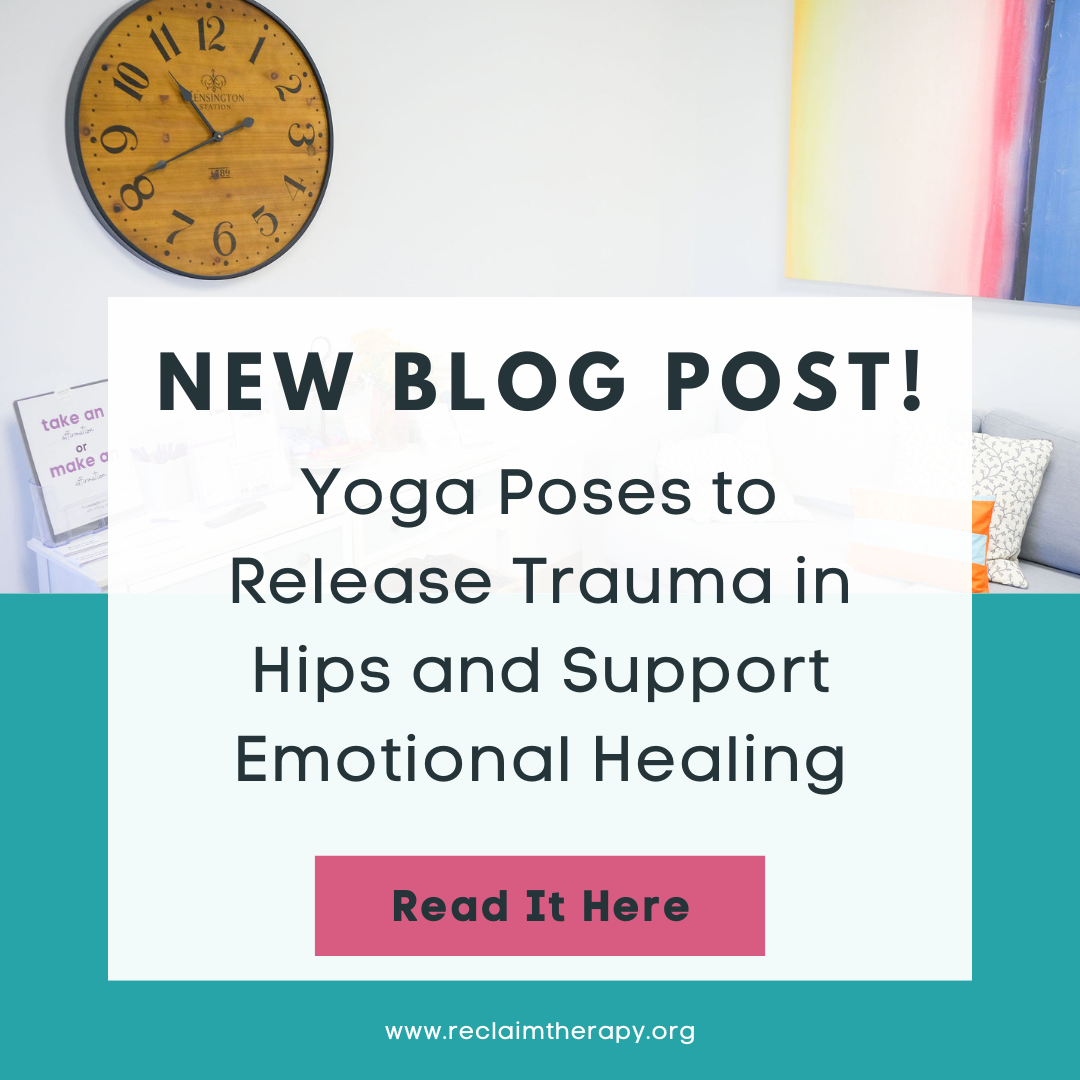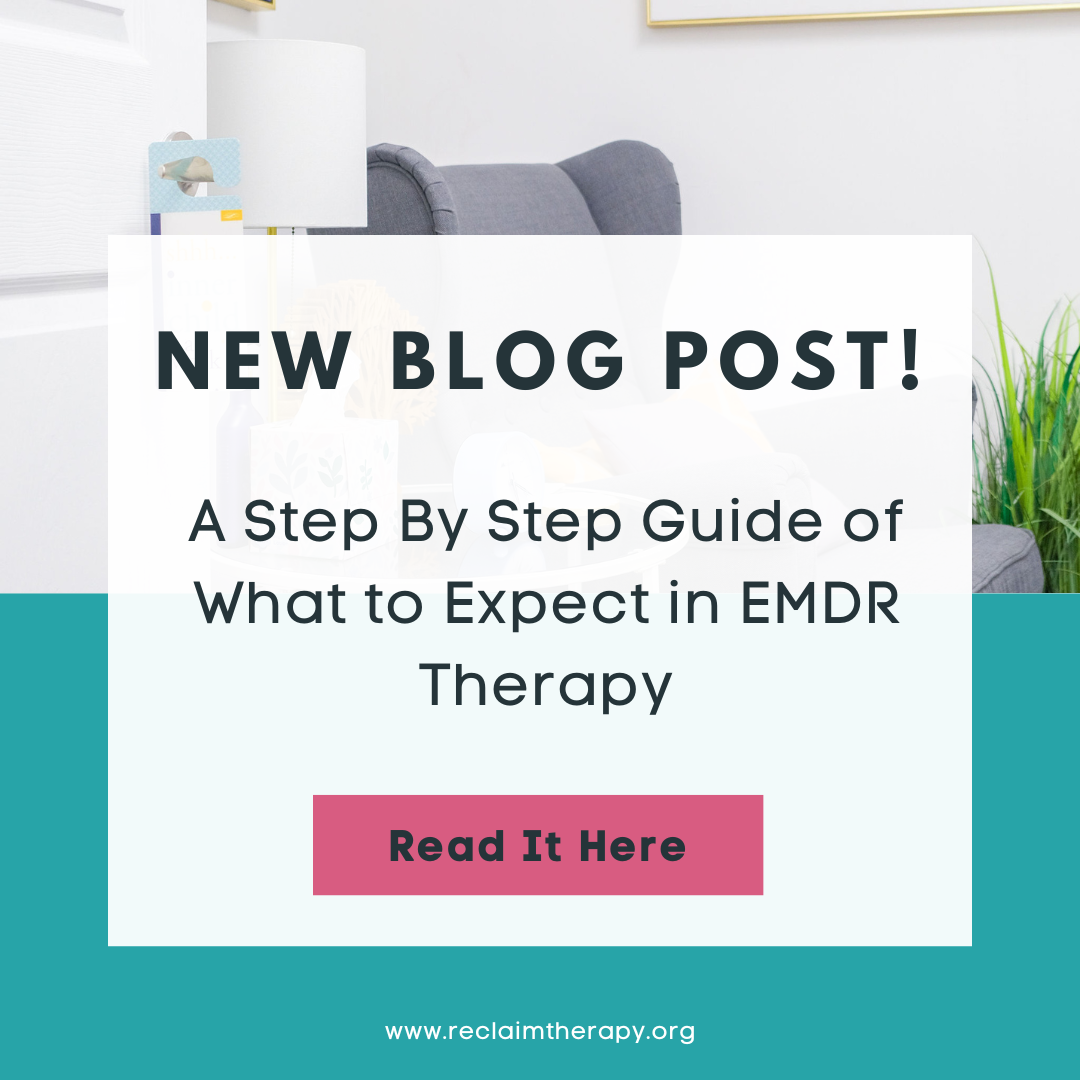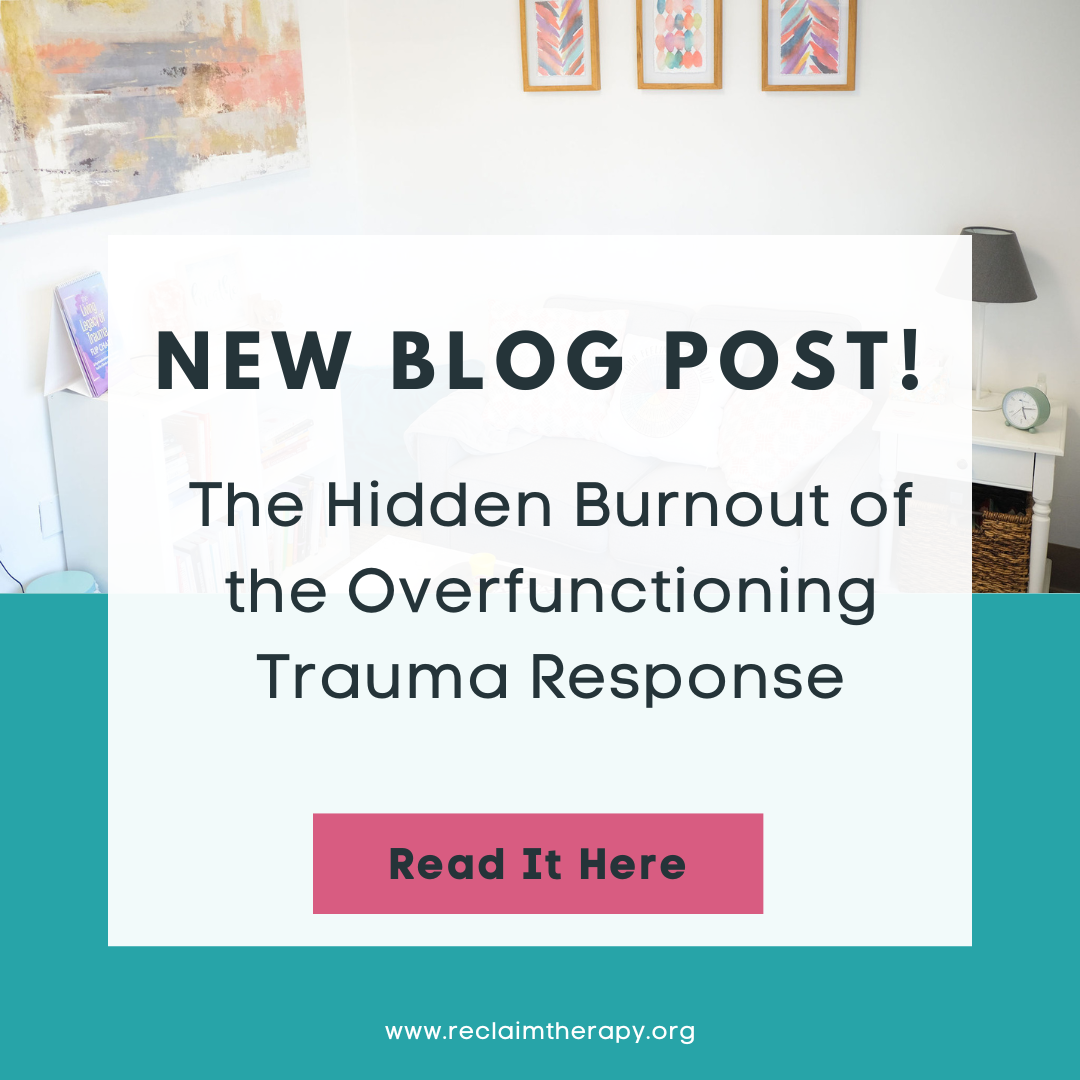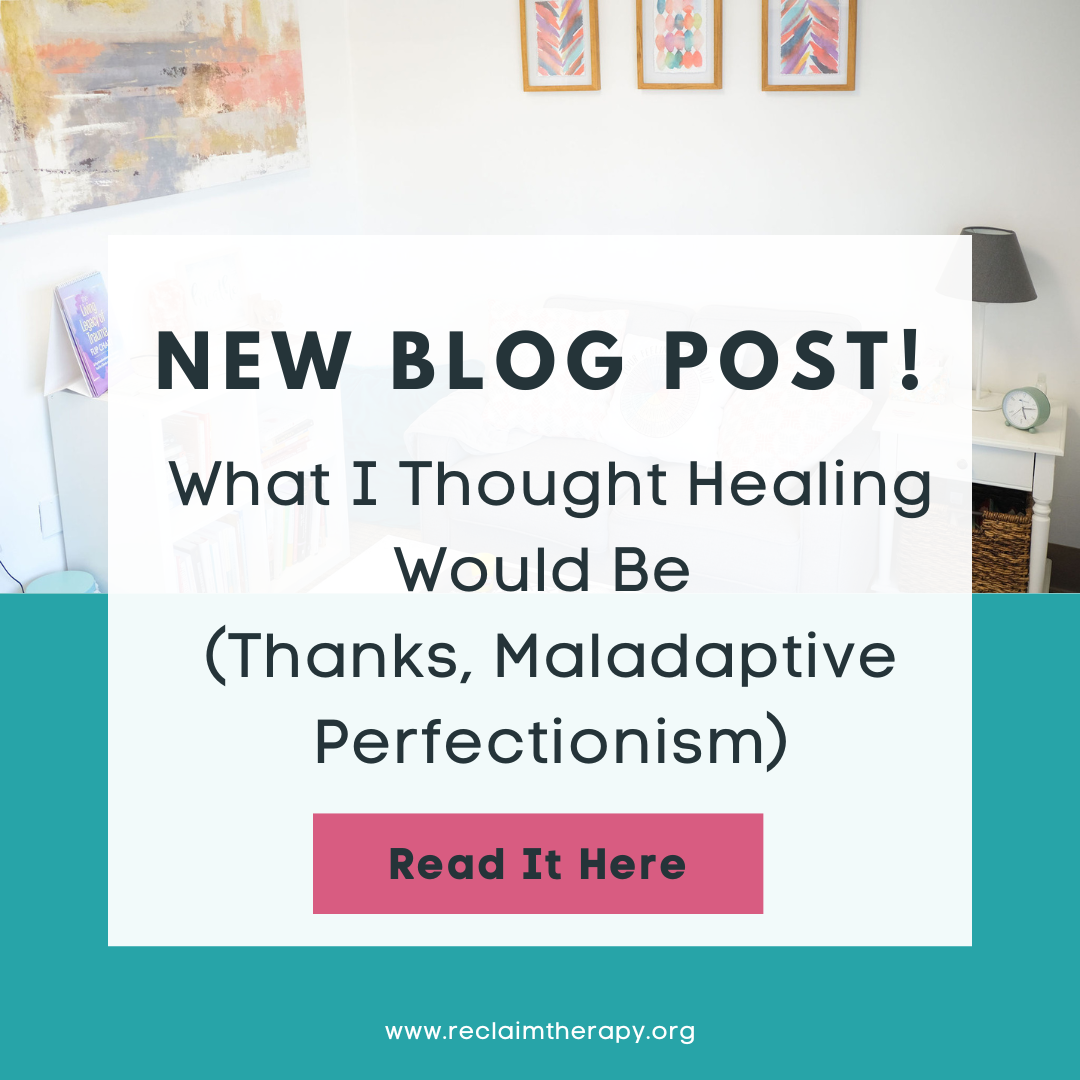
Trauma Therapy and Eating Disorder Therapy in Pennsylvania
Online in Pennsylvania and in our Horsham, PA Offices
Reclaim your life from the impact of:
Trauma and Complex Trauma
Disordered Eating
Body Shame
At Reclaim Therapy, we’re here to support you through:
Trauma Therapy and Therapy for Complex PTSD

You’ve experienced trauma and are ready to do healing work.
Or, you discovered what CPTSD is, and things just make so much more sense now.
EMDR Therapy in Pennsylvania
You’ve tried all the behavioral therapies, and they just haven’t helped the way you hoped. EMDR Therapy is bottom up therapeutic model that supports the renegotiation of trauma.
Therapy for Eating Disorders

You’re struggling with disordered eating or an eating disorder and are looking for a therapist that can help and really gets it. Because the struggle is so very real.
Binge Eating Therapy

You’re tired of all the diets, done hating your body and over feeling so out of control around food. The shame you feel post binge is intense, and you’re ready to understand and start healing from binge eating.
Body Image Counseling

You experience intense periods of shame about your body, and/or yourself as a person. You want to do the deep work of healing your body image issues.
You’re exhausted from the never-ending war with yourself.
And honestly? You’re not even sure what “normal” is supposed to feel like after everything you’ve been through.
The anxiety. The shame. The waves of self-doubt and despair. It’s overwhelming, and you’re left wondering where to even begin.
We’re so glad you found your way here.
Because healing is possible.
And this? This might just be your place to start.
We hope to support you to Reclaim YOU from the impact of trauma, disordered eating and toxic shame.
We are a group of human-first EMDR therapists who provide therapy for eating disorders, EMDR Therapy, Trauma Therapy and Therapy for Complex PTSD in Pennsylvania.
We believe healing doesn’t have to be cold or clinical. Around here, we laugh a lot, keep it real, and show up as our clients’ biggest cheerleaders, walking alongside them as they reconnect with their bodies, reclaim their stories, and build the life they deeply deserve.

Don’t Forget To Check Out What’s New On The Blog!
Yoga teachers often talk about hips as "storage places" for trauma, but the reality is more nuanced than that. Trauma isn't literally stuffed into your hip muscles like your clothes in a closet. What's actually happening is far more fascinating.
When Taylor Swift opened up about her eating disorder in the documentary Miss Americana, it felt like the cultural conversation around body image and eating disorders truly began to shift. This wasn’t just another celebrity confession.
Here's the reality. Good EMDR treatment moves at YOUR pace, not some predetermined timeline. If you've been hurt by therapists who pushed too hard or told you to "just get over it," this is going to feel different.
Let us walk you through what actually happens, step by step, so you can show up knowing exactly what to expect.
You're Googling "is EMDR therapy right for me" at 2 AM again, aren't you?
Listen, I get it.
You've heard about EMDR therapy, maybe from a friend, a podcast, or that one Instagram therapist who actually makes sense.
You call it "just how I am.”
But, doesn't it sometimes feel lonely in that carefully constructed fortress of self-reliance?
From the outside, you seem capable.
But, inside? You might be quietly unraveling.
That’s not just burnout. That’s the overfunctioning trauma response, a nervous system stuck in overdrive, long after danger has passed.
We tend to talk about trauma responses in terms of fight, flight, orfreeze trauma response. But there’s a fourth one we don’t talk about nearly enough, fawn.
"Triggered" has become one of those words that gets thrown around everywhere.
On Instagram captions, in group chats, even as a joke at the dinner table.
But if you’ve lived through trauma, emotional neglect, or a chronically unsafe upbringing, you know that being triggered is anything but funny.
If the idea of yoga makes you feel excited and self-conscious, curious and overwhelmed, welcome! You’re not alone, so many people have a very similar experience.
Maybe you’ve never stepped on a mat because you weren’t sure your body, your anxiety, or your trauma history could actually feel safe in that space.
Understanding the intricate connection between binge eating and complex post-traumatic stress disorder (CPTSD) is crucial in your journey toward healing and recovery
Rather than focusing on perfect poses or performance, it centers choice, consent, and body awareness, creating a space where you’re invited to move at your own pace, stay connected to what feels safe, and rebuild trust in your body over time.
It’s not about “fixing” anything. It’s about offering your body the care, attunement, and autonomy it may not have had before.
You know that kind of relationship that feels electric at first?
The one that sweeps you up, makes you feel chosen, alive, like maybe this time, finally, you’ve found something real?
But then, almost without warning, it shifts.
The warmth cools.
The attention fades.
And, you’re left holding the thread, trying to make sense of what just happened.
Let’s be real: maladaptive perfectionism is like that mother-in-law who shows up uninvited and starts reorganizing your kitchen.
At first, it seems helpful. Motivating, even. You tell yourself, “Well… she means well.”
But next thing you know, everything’s in a “better” place… and you can’t find a damn thing anymore.
The practice of yoga has offered me so much over the years. It’s hard to imagine myself without the tools I've gained from this practice.
This is not to say that yoga is the magic solution to all of our individual and worldly problems. (I wish it were!)
But instead of drifting into sleep, your thoughts pick up speed. Suddenly, you’re reviewing every awkward conversation you’ve ever had, planning tomorrow’s to-do list, worrying about things you can’t control, and now it’s 1:42 a.m. and your brain is still going.
Sound familiar?
Let me start with this… if you’re here, reading this, you’re probably not looking for a list of scary facts. You’ve already lived through enough of that, in your doctor’s office, in your own head, maybe even from the people who were supposed to care for you.
If you’ve been working through recovery, whether from trauma, an eating disorder, or years of feeling like you had to hold it all together, there’s a good chance you’ve bumped into perfectionism.
When starting the very hard work of normalizing your relationship with food, being curious about how restriction is playing a role in your eating behaviors is one of the most helpful places to start.
Most people don’t equate restriction with all of the eating disorders, but the truth is that restriction is at the foundation of disordered eating, anorexia, bulimia, binge eating disorder and orthorexia (along with many other things!).
Many people who have experienced trauma struggle with fragmented memories, intense emotions, and physical sensations they can't explain. Understanding the sciencey, neurobiology of trauma, can provide insights into these experiences and start to clear a path for healing.
Binge eating at night is a challenge many people face.
This way of eating involves consuming a lot of food rapidly until you feel uncomfortable. Afterward, you may experience feelings of guilt and shame. It can become a cycle of behaviors that can feel hard to end or escape.
There are moments in recovery from trauma and eating disorders that are easy to miss.
You might feel your shoulders drop after a hard conversation. Or find yourself breathing through a grocery store line instead of dissociating. Or realize you’re actually tasting your food.
If you’ve been showing up for therapy, practicing self-awareness, setting boundaries, and still find yourself overwhelmed or disconnected, it’s easy to wonder if you’re missing something, or not doing something “right”.
Ever felt like you’re floating through life, watching it all happen from the outside? That might be dissociation—and no, it's not as scary as it sounds
Feeling disconnected from your body is far more common than most people realize.
Research shows that nearly half of people with trauma histories experience significant dissociation - a protective process where your system pulls you away from overwhelming thoughts, emotions, or sensations.
You don’t remember a tragic event.
There was no funeral. No big goodbye.
You were clothed. Fed. Maybe even told you were loved.
And yet... there’s this ache.
If you’re struggling with how you feel in your body after having a baby, whether it’s been six weeks or six years, please know: there is nothing wrong with you.
If you’ve ever quietly wondered, "do men get eating disorders?" the answer is yes.
Absolutely, yes.
If you’re a man struggling with you’re relationship with food and your body, we see you.
If you’ve ever found yourself wondering whether you have complex PTSD (CPTSD) or borderline personality disorder (BPD), or if you’ve been given conflicting diagnoses, many people have had similar experiences.
Maybe someone’s tone of voice sets something off inside you, or you make a small mistake and suddenly feel like a complete failure, unworthy of love or belonging.
No clear memory. No obvious trigger. Just an emotional landslide that feels impossible to stop.
Join The Reclaim You Newsletter
Sign up for weekly(ish) insights, stories tips and tools to support you in Reclaiming YOU in the wake of trauma, disordered eating and body-shame


































Have you ever been going about your day making coffee, answering emails, having conversations but felt like you were watching it all happen from somewhere else? Like you were floating above your own life, present but not really there?